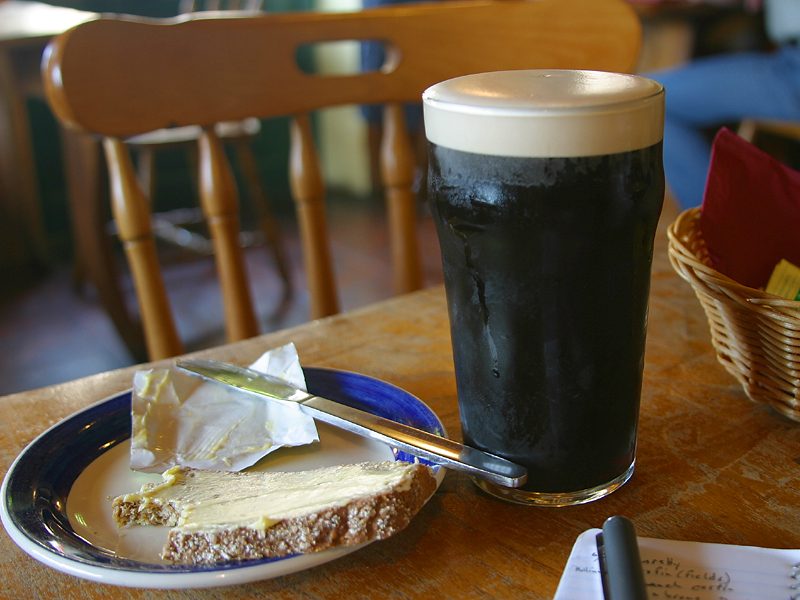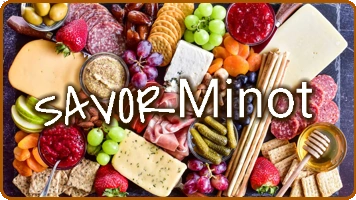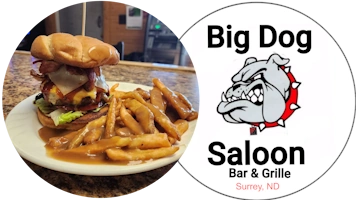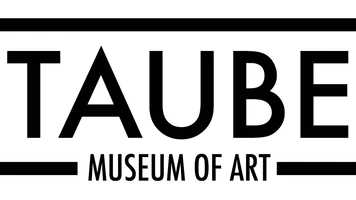Note: this editorial will make more sense if you have a basic understanding of the Minot’s liquor licensing system. Learn more here. Inline links provide additional reference. All links open in a new tab.
Last Wednesday, December 2nd, members of the Liquor and Gaming Committee were tasked with the sanctioning a Minot business that was out of compliance with the law. Sidekicks bar is operating under a Motel License but is admittedly no longer connected to the motel on the site. This was just one example of several areas in which the business was out of compliance.
Acting from a pro-business position of not wanting to close the doors of a Minot business that employs 30 people — the Liquor and Gaming Committee allowed Sidekicks to continue operation conditionally until June 1, 2016. The hope is that by then they might be eligible for a Supper Club License (50% food requirement) or a perhaps the motel would be in full operation — a contingency that would bring the establishment back into partial compliance.
While I applaud the pro-business position taken by the committee, I’m worried about the precedent now set. A decision like that has far-reaching consequences that extend beyond the individual act. In fact, if we read directly from Minot’s code of ordinances:
Section 5-32, part (e): [emphasis added]
The decision of the liquor and gambling control committee shall be final for purposes of the legal doctrine which requires the exhaustion of administrative remedies as a prerequisite for judicial review, and there shall be no right of appeal from the decision of the committee to the city council as a whole.
When considered in that light, we see three dangerous precedents.
- There is little reason to remain in compliance with our Minot’s liquor license laws because there is no penalty for breaking them.
- The only requirement for a Motel License is that the establishment is located near a motel. There need be no connection in ownership or operation of the businesses.
- The Liquor and Gambling Committee can supersede Minot law as there is no provision for allowing a non-compliant business to continue operation under ‘conditional’ license.
Now, this is the second time in less than a year that a contentious liquor license issue has been in front of both the Liquor and Gaming Committee and the full City Council. In June, City Council acted to further regulate Supper Club License holders by adding restrictions to the manner in which they could operate and when they could sell alcohol by tying that privilege closely to when their kitchens were in operation.
But to get a clear picture on the effects of that decision, we have to go back to early 2014 when City Council revised and loosened the restrictions on operating as a ‘Supper Club’ in the Renaissance Zone by eliminating the seating requirement(p.19). Since the time of that action, something remarkable happened in downtown Minot — significant growth and investment. After that loosening-of-the-law, we saw Souris River Brewing further flourish, we saw investment at the Starving Rooster, expansion of Sweet & Flour, and the intent for a fourth unique business — The Wurst Place.
Since this summer’s decision to expand regulation of supper clubs, we’ve seen the scale tip dramatically the other direction. Souris River Brewing gave back their Supper Club license in exchange for a less restrictive beer and wine license, Sweet & Flour closed citing difficulty with city regulation as a contributing reason, and The Wurst Place closed after a changing construction schedule handcuffed their intent to operate as a restaurant.
The point I’m making is this — the laws we enact through City Council have a significant impact on the quality of life in Minot. Restaurants and bars are vital pieces of the cultural infrastructure, and we keep hitting our head on issues with regards to the laws and licensing that affect these businesses.
It is because this City Council continues to treat symptoms and not the disease.
Minot’s liquor license laws are the archaic remnants of the prohibition era and are stifling investment today. The quota system that restricts competition and entitles certain license holders to special protection from the City of Minot needs to go.
Nobody wants a bar on every corner, but the free market has proven remarkably effective at making sure we don’t have too many of one type of business — and it doesn’t require any enforcement. Further, a free and open market inspires investment and rewards good business operators.
And if you look around the country at communities that have vibrant and dynamic restaurant industries you’ll find one thing in common — an open and non-restrictive alcohol licensing policy. It’s noteworthy because beer and liquor are significant profit centers for these businesses.
In closing, never has it been clearer that Minot’s liquor license laws need a complete rewrite. We can’t continue to send mixed messages to business owners who want to invest in our community. We need to send one clear message — that we want your business; we want you to invest.
The way we send that message is simple — we do it by creating a regulatory environment that makes it possible to enter the marketplace and doesn’t play favorites with certain business types. These changes are totally within our control.




Josh you are absolutely correct. As we discussed before, ANYBODY can go into business and compete against my business. And over the years there have been at least 10 others attempting to open businesses to compete with me. But as of this time only 3 remain which proves that if you run a good business you will succeed and the other will fold by the wayside. But by limiting licenses all they accomplish is making someone rich by selling a $3000.00 license for upwards of $400,000.00 as our current mayor did. It is time for a change but working with our current group of minions that will not happen.